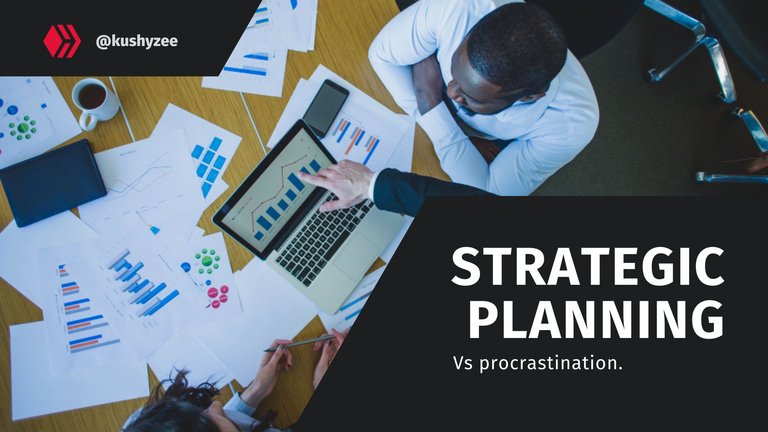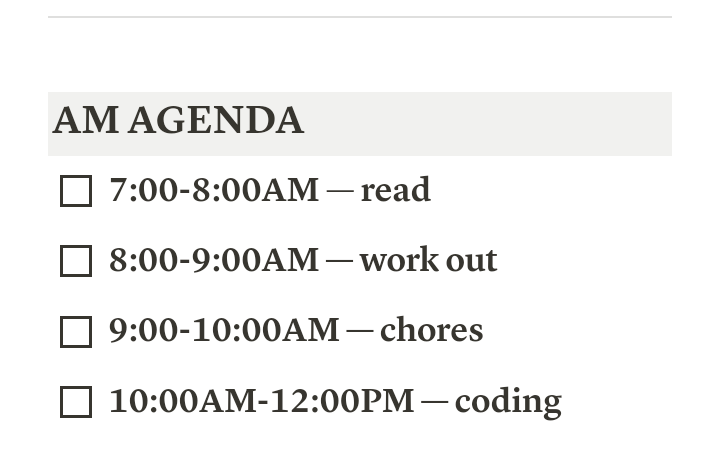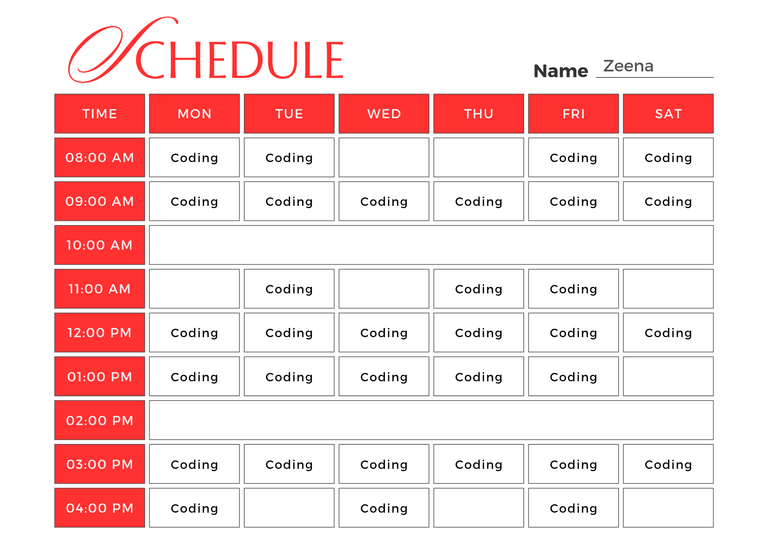Strategic planning vs procrastination

Back in the day, I used to pride myself as a non-morning person, mostly woke up from sleep around 8 or even 9 AM and I always procrastinated on doing my chores till it was evening, always telling myself that I didn't have the energy to do anything productive because I'm not a "morning person". But I guess that's actually true because I'm mostly full of energy during midday and that's why I would rather spend my mornings lazying around than actually doing my chores or anything productive.
The story isn't the same these days as responsibilities have magically transformed me into a morning person and although I don't wake up at 5 AM daily, I still wake up earlier than I used to (a few minutes before 7 AM). I decided to change my life during the COVID-19 lockdown period by being intentional with how I spend my time and doing things I know will give me a fighting chance in life. That decision came after I got tired of the same daily routine which revolved around video games, movies and spending a ridiculous amount of time on social media.
Even when I started to put my life in order, I still had one big enemy; procrastination, the enemy of productivity. I started learning graphics design back then and I registered for a course on Udemy but sometimes when I wake up in the morning and I hopped on social media, I get carried away and eventually it's mid-day. What was the solution? I uninstalled all my social media apps and games and ghosted on Whatsapp. It worked wonderfully and I was able to focus on leveling up my designing skills which eventually paid off in a couple of months when I started working professionally.
I have read a lot of books on productivity and building good habits (Atomic Habits, 12 Weeks Year, Productivity for Dummies, The Power of Habit and so on) and one thing that all the authors of those books talked about when it comes to being productive and building good habits is to place positive cues around you. If you want to work out when you wake up every morning, then place a dumbbell or your workout clothes close to your bed. For me, my day mostly starts with reading a book for an hour and what was the solution I came up with?

I always make sure that the book I want to read is the last thing I open on my phone (I usually read digital copies) before going to bed so that when I wake in the morning and grab my phone, the first thing I see is the book. Hiding the things you plan to do will make it easy for procrastination to come in, and it's the same if you surround yourself with distractions for example; placing social media apps on your phone's homepage. You unlock your phone, see TikTok and decide to just watch a few videos but before you know it, "a few videos" suddenly become over 3 hours spent scrolling through TikTok videos (speaking from experience!).
I'm not actually an expert at planning and productivity because I am still experimenting with different systems. I tried using the 12-week system after reading the book (The 12 Week Year) and it worked for a month or two but I eventually lost interest. It involved planning the next day before going to bed, so I already had a template in the Notion app and all I had to do was edit it and write out the things I would do the next day (that was what you saw in the picture earlier).
The problem was that the system is too rigid, considering I plan every detail out but we all know that nothing is certain in this life and most of the time, something I didn't plan for comes up and ruins the whole schedule because I would have to readjust the whole thing. Back then, I had 2 major things I do every day; coding and Hive. So, I made it easier by doing something I learned in the university; creating a timetable/schedule for coding. I set out the hours I would dedicate to coding and focus on it during those hours, while Hive was set for after coding hours.

The blank spaces you see are free hours, which I use to do anything I want (eat, browse social media, play video games or do chores). Coding ends at 4 or 5 PM, after that, I end anything that has to do with coding and I focus fully on Hive. This system is easy for me to follow because I just had to pretend that it's a lecture schedule like the one used in universities and when I was in the university, I rarely missed lectures. Once it was time for a lecture, I found myself in the lecture theatre, and most of our class schedules began by 8 AM and ended by 4 or 5 PM, with breaks in between.
So, I just had to tailor my coding schedule to resemble the lecture timetable used during my university days. Basically, I follow that plan on most days but there are days that I just go with the flow because if we are being honest, you will eventually get bored doing the same thing every day. So, once in a while, I spice things up by being spontaneous with the things I do for that day. I might spend fewer hours on coding while spending more time on distractions (social media, video games) but I always go back to the plan the next day.
In summary, I mostly plan my day but sometimes I just go with the flow and let procrastination take the front wheel. I try to wake up as early as possible every day and that's mostly because if I want to achieve most of the goals I set out for the day, it pays to start very early. The good thing about planning my day is that it gives me better time management and makes it easier to allocate time effectively to important tasks. One other benefit that isn't so obvious (although I mentioned it earlier) is flexibility. Even though something unexpected comes up, I can always look at my daily schedule and know if I can continue with the current task (coding) or move on to the next one.
Thanks for reading
This is my entry for May Inleo Prompt, day 19. Come be a part of this awesome daily prompt by clicking on this link.

Connect with me on:
Twitter: @kushyzeena
Readcash: @kushyzee
First image: personal screenshot
Second image: created with Canva
Posted Using InLeo Alpha
